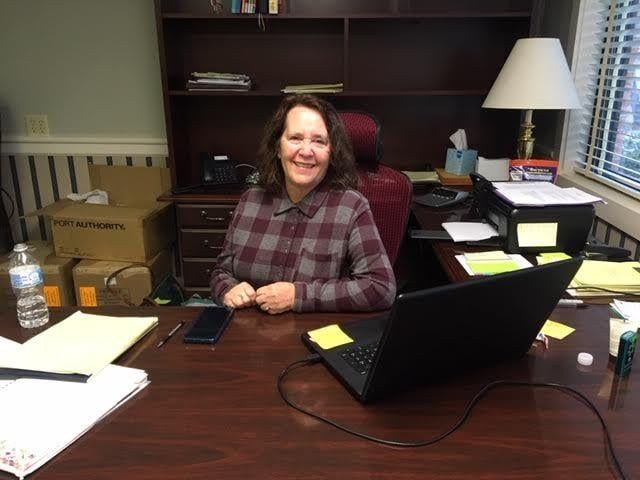
More than anyone in the county, Mindy Rathbone understands the challenges faced by a family trying transition from homelessness to self-sustainability.
“It not a quick fix and it’s not an easy fix,” said Rathbone, who is the caseworker for the EACH Initiative, which stands for Ending Area Childhood Homelessness. “It’s a long process that’s very demanding on the moms. They have a case manager coming into their life and nothing is hidden. It’s really hard to just be vulnerable and completely open. It’s hard to allow someone into your own mess.”
The EACH Initiative provides a two-year program that helps a single parent with children by providing them with a free place to live for two years as they work on a life plan toward sustainability.
The plan can include higher education, specialized training to procure a higher-paying job or another path the participant is willing to work on. The life plan is very detailed and assigns a time frame to the steps the family wants to accomplish. It is sometimes four and five years out. Most in the program have a job, and in addition to caring for their children, often attend college full-time.
During their time in the program, participants are surrounded by the love of mentors — a budget coach, a caseworker, a career coach and others who will help out with things like emergency childcare or transportation as a family rebuilds its life.
Sometimes the lives have been shattered by domestic violence; other times it is sickness or circumstances that make it impossible to keep up with bills. Some have brushes with addiction, something that needs to be in the past as a condition of the program, Rathbone said, explaining that drug tests are administered regularly.
“They come from a very broken place,” Rathbone said. “There’s a reason why they are homeless, and so many reasons are not the person’s fault.”
One of the hardest aspects of the EACH program that all participants struggle with is the budget, and it's an area where there is a lot of stress.
“None of us want people telling us how to spend our money,” Rathbone said. “It’s our money, and we work hard for it. It’s hard to allow someone into your bank statements and to tell you to stop eating out so much.”
Upon entering the program, many don't understand what it will require to become self-sustaining.
"One of the biggest 'aha' moments is when they actually begin to understand what their annual salary needs to be to cover rent and monthly expenses. That's when eyes open and it doesn’t happen immediately," Rathbone said.
Families enter the program sometimes with no job, and others have a $10 an hour job.
"Even on a $15 an hour job, you cannot support a family of two children," Rathbone said.
Other aspects of a program participant’s life that are under the microscope include parenting skills, nutrition and life skills in general.
Who’s chosen
Because of the stringent demands placed on program participants, families are carefully screened to assess whether they are a good fit.
Some families initially accepted have been invited to leave if they aren't truly willing to work on their problems and make a better life for their themselves and their family.
“One of the most important characteristics that a participant would need is motivation —the real desire to want to make their life better,” Rathbone said. “That one of the ways we determine who gets in program. Secondly, truthfulness and a willingness to be open with us are other factors, and they have to be willing to work with a case manager."
Working with a case manager is a deal breaker for some, Rathbone said, saying people will tell a sob story all day long but at the end of the day, aren't willing to do the work it takes to improve their situation.
Rathbone works with multiple agencies that are looking for transitional housing for clients, including Haywood Pathways Center, the area homeless shelter; REACH, the domestic violence organization serving Haywood and the 30th Judicial District Alliance, a group that works regionally with domestic violence victims.
As the program's lone caseworker, Rathbone works with both EACH family members and volunteers — people she said are essential to the program's success.
"The reason why I love EACH so very much is that it is not a Band-aid. EACH is going in there, doing the hard work with the families, teaching them — not just telling them — and motivating them to create a sustainable life for themselves," she said.
Her other favorite aspect aspect of the program is that it is breaking generational cycles.
"Children follow in their parents' footsteps," she said. "This way the kids do have a fighting chance."
December 17, 2020 at 01:46AM
https://www.themountaineer.com/news/changing-lives-isnt-easy/article_64ee6546-3fc5-11eb-910b-3f1865725a4b.html
Changing lives isn't easy | News | themountaineer.com - The Mountaineer
https://news.google.com/search?q=easy&hl=en-US&gl=US&ceid=US:en
No comments:
Post a Comment